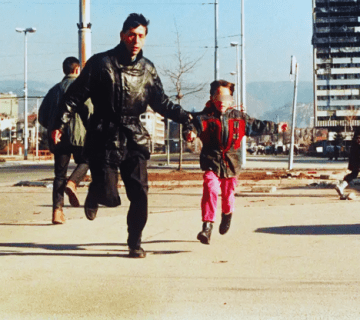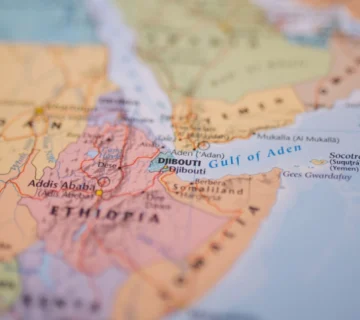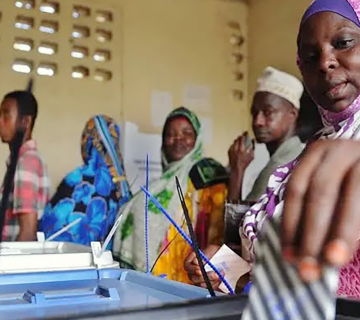On February 16, 2018, the South Sudanese government refused to sign an agreement on rules to facilitate discussion aimed at reviving the country’s collapsed 2015 peace deal. The government’s refusal to sign the Declaration of Principles (DOP) is largely based on criticism of Article 28, which calls for taking punitive measures against individuals who block implementation of the revived peace deal. Additionally, during the peace talks in that same period, the parties reached another deadlock on the composition of the South Sudan’s transitional National Legislative Assembly. If the talks fail, it is definitely not the first time. Peace agreements in 2013, 2015, and lately a cessation of hostilities agreement in December 2017, have all been violated hours after signing. On May 17 – 21, 2018, a third round of peace negotiations is being held in Addis Ababa. What can be expected from these talks?
The third phase, which has been postponed twice, is expected to involve the continuation of discussions around governance and security arrangements that were initiated at the second phase of the Forum. South Sudan’s President Salva Kiir Mayardit has said at a military parade at the army headquarters in Juba on April 20, 2018 that “it is only in South Sudan where rebels are rewarded with ranks and positions. In other countries, rebels are rewarded with death”, hinting at the power-sharing formula proposed by the Intergovernmental Governmental Authority on Development (IGAD). The formula prefers four deputy presidents for South Sudan.
One might argue that the South Sudanese conflict is intractable. Intractable conflicts create a sense of hopelessness in analysts and practitioners. One might say that intractable conflicts are those conflicts out of which participants see no way out without accepting unacceptable losses. Put another way, these conflicts persist because the perceived costs of settling are seen as higher than the costs of continuing the fight. The repeated failure to negotiate an end to a conflict confirms its intractability. Often these failures discourage new attempts and create a burden of mistrust to be overcome. Consequently, the struggle continues.
According to a European Commission factsheet on South Sudan, published in February 2017, more than 1.85 million people are internally displaced, 4.9 million people are severely food insecure, one million are on the brink of starvation, and another 1.5 million people fled to neighbouring countries. At a last count in November 2014 by the International Crisis Group was determined that at least 50,000 people were killed. This estimate is one of the last trustworthy tallies, but the real number is probably higher.
Solving intractable conflicts like South Sudan is a complicated matter. It is conventional wisdom in the scholarly literature on peace and state building that change should come from within and be championed by local leaders. A United Nations (UN) Panel of Experts on South Sudan determined in their report on April 12, 2018 that “in this environment, the President, Salva Kiir, continues to consolidate power around himself in the interest of self-preservation and securing political and economic interests, and is surrounded by a small core group of trusted hardliners at the apex of decision-making in the country.” How much then can be expected of President Kiir’s faction?
On May 8, 2018, the United Nations in a Security Council Report once again pressed the various parties to strike a peace deal. Both parties have repeatedly hindered peace efforts, and violated agreements and human rights, further deteriorating the situation. The United Nations Panel of Experts has argued in the same report that “given the lack of political will to implement ongoing peace efforts, and absent robust pressure from the region and the international community, the situation in the country will continue to deteriorate, with enormous humanitarian and regional security implications.” The Panel recommends an arms embargo, and targeted sanctions against those that are responsible for actions that threaten the peace, security, and stability of South Sudan.
Based on this Panel report, Security Council Resolution 2406, adopted on March 15, 2018, expresses the Council’s intention to “consider all measures, including an arms embargo, as appropriate, to deprive the parties of the means to continue fighting and to prevent violations of the Cessation of Hostilities Agreement (CoHa).” The Security Council’s consideration of these measures will likely be influenced by parties’ commitment and progress in the next round of peace negotiations in May 2018.
Whether the targeted sanctions and an arms embargo looming over the third round of peace negotiations in May 2018 will render any substantial results remains to be seen. It would be interesting to see how this move affects scheduled peace negotiations on May 17 – 21, 2018 in Addis Ababa, Ethiopia. Consequently, it might be interesting to see which extent the threat of targeted sanctions and an arms embargo is sufficient to compel improved behaviour by the parties to the conflict.
Jules Swinkels is a Visiting Research Fellow at the HORN Institute.



